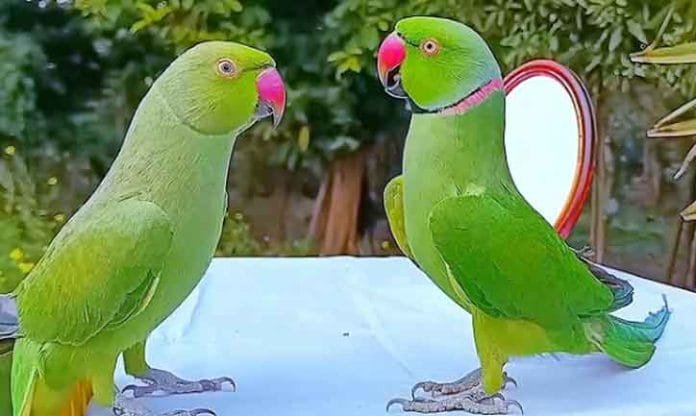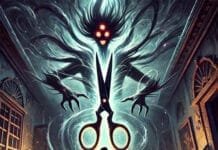Parrots, with their vibrant feathers and engaging personalities, have long been a popular choice as pets. In various cultures around the world, they are considered both auspicious and inauspicious depending on specific beliefs and traditions. This article delves into the different perspectives on keeping a parrot, exploring the cultural, spiritual, and practical aspects to help you decide whether a parrot is a suitable pet for you.
Cultural Beliefs About Parrots
Parrots in Ancient Civilizations
In many ancient civilizations, parrots were revered for their beauty and intelligence. For instance, in Mesoamerican cultures, parrots were seen as symbols of the sun and were often associated with gods. The Aztecs and Mayans considered parrots to be messengers of the gods, and they often featured in art and religious ceremonies.
In ancient Hindu traditions, parrots were associated with love and devotion. The deity Kamadeva, the god of love, is often depicted with a parrot. Parrots are believed to bring good fortune, love, and harmony into the household.
Parrots in Feng Shui
In Feng Shui, the ancient Chinese practice of arranging living spaces to promote harmony and balance, parrots are considered auspicious symbols. They are believed to bring positive energy and luck into the home. Parrots, particularly those depicted in pairs, are thought to enhance relationships and marital harmony.
According to Feng Shui principles, placing a parrot in the southern part of the home can boost recognition and fame, while positioning them in the southeastern corner may attract wealth and prosperity.
Spiritual Significance of Parrots
Symbols of Communication and Clarity
Parrots are renowned for their ability to mimic human speech, making them symbols of communication. Spiritually, they represent clarity, wisdom, and the power of the spoken word. In many traditions, parrots are seen as guides that can help individuals articulate their thoughts and express themselves more clearly.
Harbingers of Change
In some spiritual beliefs, parrots are considered harbingers of change. Their vivid colors and lively behavior are seen as indicators of transformation and new beginnings. Keeping a parrot can be a reminder to embrace change and adapt to new circumstances with grace and enthusiasm.
Practical Considerations of Keeping a Parrot
Long Lifespan
Parrots can live for many decades, with some species like the African Grey and Macaw living up to 60 years or more. This long lifespan means that keeping a parrot is a long-term commitment. Prospective parrot owners must be prepared for this responsibility, ensuring they can provide consistent care throughout the bird’s life.
Social and Intelligent Creatures
Parrots are highly social and intelligent creatures. They require regular interaction and mental stimulation to stay healthy and happy. Without sufficient socialization, parrots can develop behavioral issues such as feather plucking, screaming, and aggression. Owners must be willing to invest time in training and engaging with their parrot daily.
Dietary Needs
Parrots have specific dietary requirements that must be met to ensure their well-being. A balanced diet for a parrot includes a variety of fruits, vegetables, nuts, seeds, and specially formulated pellets. Providing a nutritious diet is crucial for preventing health issues and ensuring the longevity of your parrot.
Inauspicious Beliefs About Parrots
Negative Omens in Some Cultures
Despite the many positive beliefs surrounding parrots, some cultures view them as inauspicious. In certain regions, parrots are considered harbingers of bad luck or misfortune. For example, in some parts of India, the sight of a parrot on a journey is believed to bring bad luck.
Associated with Mischief and Chaos
Parrots are also sometimes associated with mischief and chaos due to their playful and curious nature. Their tendency to mimic sounds, including potentially disruptive ones, can be seen as a nuisance. In some traditions, this behavior is interpreted as a sign of disorder and unpredictability, which can be considered inauspicious.
Balancing Beliefs and Practicalities
Personal Preferences and Lifestyle
When deciding whether to keep a parrot, it is essential to balance cultural and spiritual beliefs with practical considerations. Assess your personal preferences, lifestyle, and ability to meet a parrot’s needs. Ensure that you can provide a stable and enriching environment for your parrot, which will help mitigate any potential negative aspects associated with their care.
Consulting with Experts
If you are uncertain about the auspiciousness of keeping a parrot, consulting with cultural or spiritual experts can provide valuable insights. Additionally, speaking with veterinarians and experienced parrot owners can help you understand the practical aspects of parrot care and ensure that you are fully prepared for the commitment.
The question of whether keeping a parrot is auspicious or inauspicious is complex and multifaceted. It depends on cultural, spiritual, and personal beliefs, as well as practical considerations. While parrots are often seen as symbols of good fortune, love, and communication, they can also be associated with mischief and unpredictability in some cultures. Ultimately, the decision to keep a parrot should be based on thorough research, personal conviction, and a genuine commitment to providing the best possible care for these intelligent and beautiful creatures.
By understanding the various perspectives and ensuring that you can meet the needs of a parrot, you can make an informed decision that aligns with your values and lifestyle. Whether seen as auspicious or inauspicious, a parrot can be a delightful and enriching addition to your home, bringing joy and companionship for many years.
















